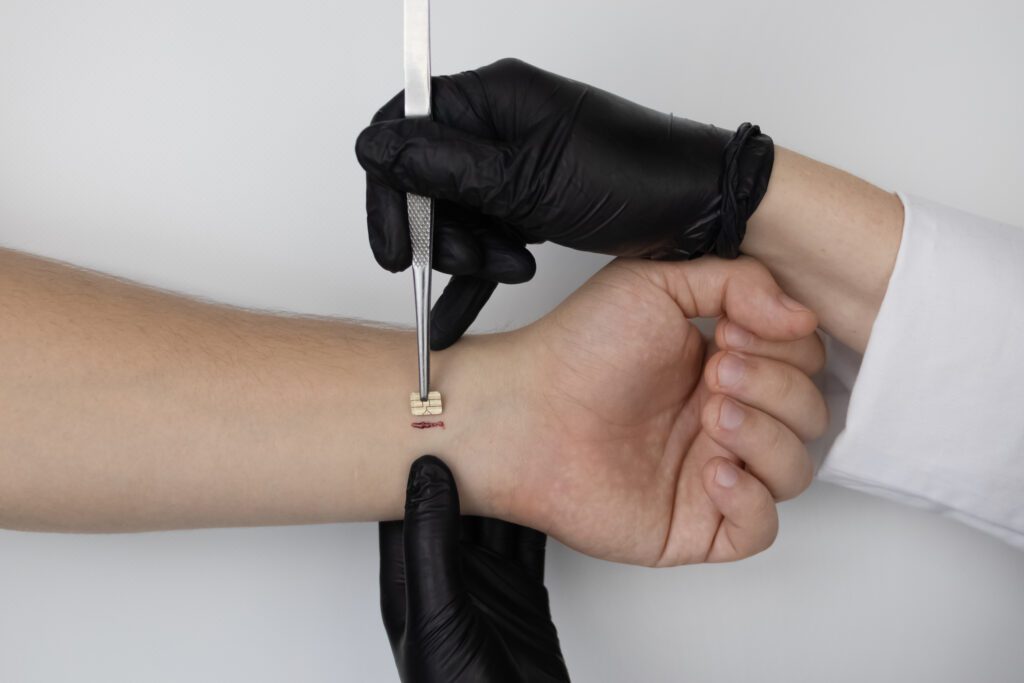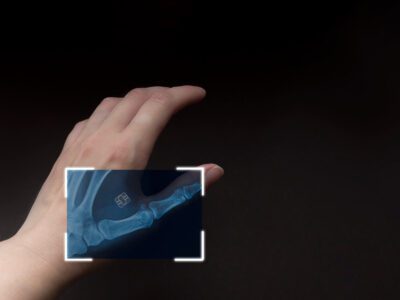BRIAN J GRABER LLC represents Indiana employees and prospective employees suffering employment discrimination for refusing an employer’s requirement to implant a device into their bodies. IC 22-5-8-1, et seq., prohibits employers from requiring employees to permit the implantation of a device into their bodies as a condition of employment. IC 22-5-8-1, et seq., prohibits employers from discriminating against non-consenting employees. This Indiana discrimination law became effective on July 1, 2021.
The Indiana Employment Discrimination Law Applies To All Indiana Employers.
This Indiana discrimination law applies to all employers in the State of Indiana employing at least one (1) or more employees. The term “employer” is broadly defined as follows:
“Employer” means the state or any individual, partnership, association, limited liability company, corporation, business trust, or other governmental entity or political subdivision that has one or more employees.
IC 22-5-8-1.5
Under this broad definition, all private employers, as well as the State of Indiana and all Indiana government employers, are prohibited from discriminating against employees and prospective employees who refuse any requirement to implant a device into their bodies.
Definition of “Device” Under The Indiana Employment Discrimination Law.
The Indiana employment discrimination law is defined as follows:
“Device” includes any acoustic, optical, mechanical electronic, medical, or molecular device.
IC 22-5-8-1
This Indiana employment discrimination IC 22-5-8-2(a) is triggered when an employer requires an employee or prospective employee to do any of the following:
- Implant, or undergo a procedure to implant, a device in the candidate’s or employee’s body. See IC 22-5-8-2(a)(1).
- Inject, or receive an injection of, a device into the candidate’s or employee’s body. See IC 22-5-8-2(a)(2).
- Ingest, inhale, or otherwise incorporate a device into the candidate’s or employee’s body. See IC 22-5-8-2(a)(3).

Employer Liability For Requiring Implantation Of Devices As A Condition Of Employment.
This Indiana employment discrimination law prohibits an employer from requiring the implantation of a device as a condition of employment as follows:
An employer may not require an employee or prospective employee to take any of the following actions as a condition of employment, as a condition of employment in a particular position, or as a condition of receiving additional compensation of other benefts: (1) Implant, or undergo a procedure to implant, a device in the candidate’s or employee’s body; (2) Inject, or receive an injection of, a device into the candidate’s or employee’s body; or (3) Ingest, inhale, or otherwise incorporate a device into the candidte’s or employee’s body.
IC 22-5-8-2(a)(1)-(3).
Any Indiana employer that requires an employee or prospective employee to take any of the actions outlined above in IC 22-5-8-2(a)(1)-(3) as a condition of employment, as a condition of employment in a particular position, or as a condition of receiving additional compensation or benefits violates Indiana employment discrimination law. The only exception to statutory liability is under IC 22-5-8-2(c).
Employer Liability for Discrimination Against Employees Refusing Implantation of Devices.
This Indiana employment discrimination law IC 22-5-8-2(b) prohibits employers from discriminating against employees with respect to: (1) the employee’s compensation and benefits; or (2) terms and conditions of the employment – based on the employee’s refusal to take the following actions:
- Refusing to undergo an implant, or procedure of, a device into the employee’s body;
- Refusing an injection or receiving an injection of, a device into the candidate’s body;
- Refusing to ingest, inhale, or otherwise incorporate a device into the candidate’s or employee’s body.
Indiana employers may have liability under IC 22-5-8-2(b)(1)(2) for discriminating against their employees for refusing the implantation of a device into their bodies. The only expectation to statutory liability for employment discrimination is IC 22-5-8-2(c).

Court Ordered Exception to Liability.
The only expectation of this Indiana employment discrimination statute is as follows:
An employer may, as a condition of employment, as a condition of employment in a particular position, or as a condition of receiving assitional compensation or other benefits, require an employee or prospective employee to comply with a court order that directs the employee or prospective employee to take an action described in subsection (a).
IC 22-5-8-2(c).
Civil Action and Damages for Violations.
IC 22-5-8-3(a) allows Indiana employees and prospective employees to bring a civil action against their employers for (1) requiring the implantation of a device as a condition of employment in violation of IC 22-5-8-2(a) or (2) discriminating against employees for refusing the implantation of devices in violation of IC 22-5-8-2(b).
Under IC 22-5-8-3(b) if an Indiana employer violates IC 22-5-8-2, the court may award the employee any of the following remedies:
- Actual damages;
- Court costs and reasonable attorney’s fees to the prevailing employee or prospective employee;
- Enjoin further violation of the statute.
IC 22-5-8-4 provides that nothing in this Indiana employment discrimination statute limits an employee’s or prospective employee’s rights or remedies under any other state or federal law. Therefore, an Indiana employee can enforce his or her rights under IC 22-5-8-2(a) & (b) and any other rights under federal discrimination laws.
If you believe your employer violated your rights under Indiana employment discrimination laws by requiring you to implant a device as a condition of employment or discriminated against you for refusing to implant a device into your body, contact BRIAN J GRABER LLC, an Indiana employment discrimination lawyer, at (219) 232-9011 or by email for a free confidential consultation.
